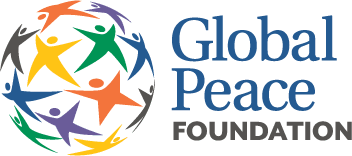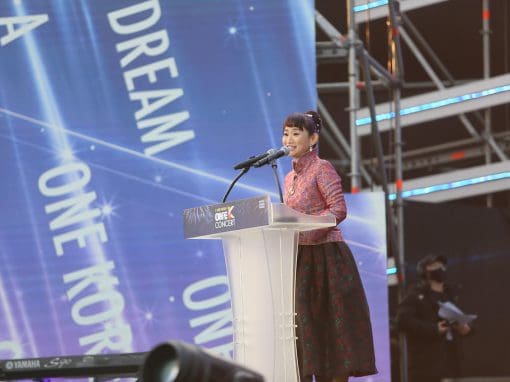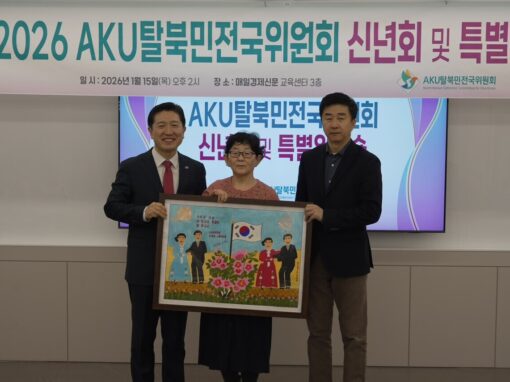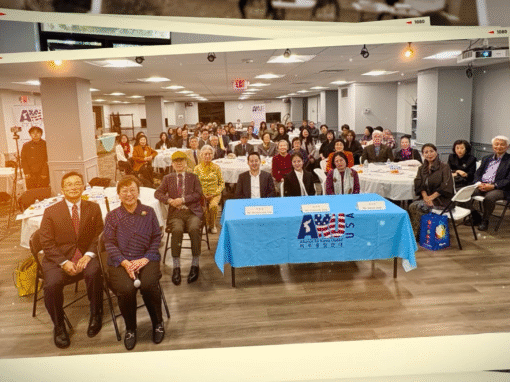On October 15, 2025, at the Taeyoung Art Hall in Yeouido, Seoul, the third Korean Dream Unification Strategy Forum was held with the support of Action for Korea United, bringing together leading experts in unification and national security.
Participants reflected on the failures of past responses to North Korea’s nuclear program and explored possible new strategies.
Major media outlets, including Weekly Dong-A, attended the event, signaling growing public and media attention toward the expansion of the national discourse on unification.
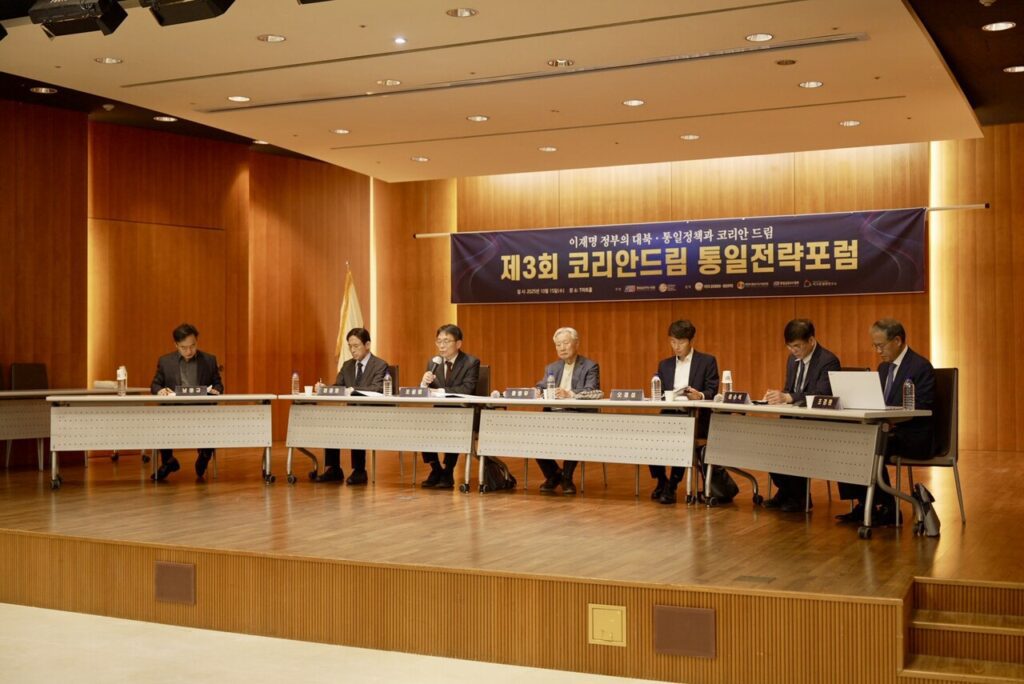
The 3rd Korean Dream Unification Strategy Forum, co-hosted by Action for Korea United (AKU) and the Global Peace Foundation Korea (GPF Korea), was successfully held at the Taeyoung Art Hall in Yeouido, Seoul. Photo courtesy of The Korean Dream Times
The forum, held under the theme “The Unification and North Korea Policy of the Lee Jae-myung Administration and the Korean Dream,” brought together leading experts in unification and security as well as figures from civil society for active discussions on strategies for peace and unification on the Korean Peninsula.
Forum Opens with Welcoming Remarks by Chairman Inteck Seo
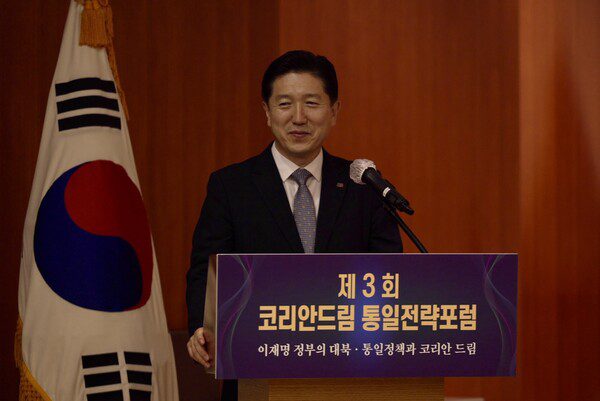
The forum began with opening remarks from Inteck Seo, co-chairman of Action for Korea United. Photo courtesy of The Korean Dream Times
Chairman Seo stated that “with the inauguration of the new administration, it is an important time to set a clear direction for inter-Korean and unification policy,” noting that “in the past, unification policies have lost consistency and have been distorted to suit the preferences of conservative and progressive governments.”
He continued, “In this situation, Action for Korea United has been consistently advancing a citizen-led, grassroots unification movement based on the spirit of Hongik Ingan and the vision of the Korean Dream.” He explained that “this forum was organized to conduct an in-depth analysis of the Lee Jae-myung administration’s policies and to explore strategic approaches rooted in the Korean Dream vision for unification.”
Chairman Seo expressed his hope that “this will be a meaningful gathering to reflect on the future of the Korean Peninsula and to share wisdom on the path toward unification,” emphasizing that “through expert analysis and discussion, we must seek feasible unification strategies and build a national consensus based on them.”
Professor Sung-ryeol Cho Presents Evaluation of the Current Government’s North Korea Policy and Future Tasks
The first presenter, Professor Sung-ryeol Cho of Kyungnam University (former Consul General in Osaka), delivered an in-depth analysis under the theme “Evaluation of the Lee Jae-myung Administration’s North Korea and Unification Policy and Desirable Implementation Strategies.”
Professor Cho explained that the Lee administration’s North Korea and unification policies have been specified through the 2022 and 2025 presidential campaign pledges, the National Policy Planning Committee White Paper, the August 15 Liberation Day address, and the September 23 UN General Assembly keynote speech. He noted that the 2025 campaign placed top priority on defense reform, linking economic development, national security, and peace on the Korean Peninsula—a shift from the 2022 pledges toward greater practicality, institutional feasibility, and alignment with national interests.
Regarding President Lee Jae-myung’s “E.N.D. Initiative” (Exchange–Normalization–Denuclearization) introduced at the UN General Assembly, Professor Cho described it as “a pragmatic and step-by-step solution aimed at ending the era of hostility and confrontation.” He analyzed that the proposal outlines a three-stage denuclearization process—beginning with suspension of nuclear activities, followed by reduction, and ultimately leading to dismantlement.
However, Professor Cho also pointed out several constraints, including North Korea’s lack of response, international uncertainty, and domestic disagreement. He predicted that, given the Kim Jong Un regime’s “two-state” doctrine, its hostile stance toward South Korea, and the strengthening of North Korea–Russia–China cooperation, it would be difficult to restore inter-Korean relations in the short term.
As future strategies for North Korea and unification policy, he proposed:
- Strengthening security capabilities while maintaining a peace-oriented approach,
- Expanding public consensus and ensuring policy continuity, and
- Enhancing international support and multilateral cooperation.
He emphasized that “rather than short-term results, securing long-term consistency and practical feasibility will be the key.”
Dr. Kyung-seob Oh Presents Three-Stage Strategy for North Korean Denuclearization
The second presenter, Dr. Kyung-seob Oh of the Korea Institute for National Unification (KINU), analyzed past South Korean administrations’ North Korea and unification policies from a historical perspective under the theme “Exploring Future Development Strategies Through Analysis of Past Governments’ North Korea and Unification Policies.” He stressed the need for reflection on 70 years of North Korea’s nuclear development and 30 years of failed denuclearization efforts.
Dr. Oh noted that every denuclearization negotiation—from the 1994 Geneva Agreed Framework to the 2018 Singapore Summit—had failed, citing the absence of an effective response to North Korea’s “salami tactics,” habitual deception, and brinkmanship.
He emphasized that, given North Korea’s potential for preemptive nuclear strikes, including the use of hypersonic missiles, reliance on extended deterrence alone has clear limits, suggesting that conditional nuclear armament may be necessary.
Dr. Oh also emphasized the importance of transferring wartime operational control (OPCON) and continuing ROK–U.S. joint defensive exercises, advocating for an evaluation of Full Operational Capability (FOC) by 2028 to ensure South Korea’s independent operational readiness.
For his vision of a unified Korea, Dr. Oh emphasized the realization of the Hongik Ingan philosophy and the establishment of a moral and symbiotic market economy. He also proposed transforming the current armistice regime into a peace regime and creating a K-Unification International Cooperation Platform.
Panelists Present Policy Directions from Diverse Perspectives
In the designated discussion session, Professor Byung-moo Hwang (Korea National Defense University, emeritus) addressed issues related to the “two hostile states theory” and the challenges of peaceful coexistence. Professor Kyung-young Chung (Hanyang Graduate School of International Studies) analyzed North Korea’s internal and external strategies, explaining the strategic significance of cooperation among North Korea, China, and Russia.
Professor Soo-seok Lee (Kookmin University Graduate School of Global Peace and Unification) observed that North Korea seeks regime security, de facto sanctions relief, and recognition as a nuclear power through its collaboration with China and Russia.
Professor Kyung-hwan Cho (Adjunct Professor, Sungkyunkwan University), an expert on Korean Peninsula geopolitics, diplomacy, and security, offered critiques of the current administration’s engagement policy toward North Korea. He emphasized the need for:
- Reflection on 70 years of North Korea’s nuclear development and 30 years of failed responses,
- Accurate interpretation of messages from the Trump administration,
- Expanding diplomatic leverage through broader engagement, and
- Upholding principled North Korea policies that align with public expectations.
Director Kwang-kyu Nam of the Maebong Institute for One Korea raised questions about the concept of “negotiated unification” under the principle of peaceful unification, and reexamined the constitutional meaning of “peaceful unification based on the free and democratic order.”
Media Attention and Expectations for the Expansion of the Unification Discourse
Major media outlets such as Asia Today, Weekly Dong-A, and Newsis attended the forum, demonstrating that the Korean Dream Unification Strategy Forum has attracted growing attention from the press. Participants noted that the event fostered in-depth discussions on the national challenge of peace and unification on the Korean Peninsula and expressed hopes that continued forums in the future would help build a broad public consensus.
A representative from Action for Korea United and the Global Peace Foundation Korea, which co-hosted the event, remarked, “At a time when the Lee Jae-myung administration’s North Korea and unification policy is taking shape, this forum provided a meaningful opportunity to explore desirable policy directions through expert analysis and discussion. We will continue to hold similar forums to promote constructive public dialogue on peace and unification of the Korean Peninsula.”
The diverse perspectives and policy proposals presented at the forum are expected to serve as valuable reference materials for the government’s future North Korea and unification policy development, as well as for building public consensus. In particular, the experts’ systematically organized insights on denuclearization, inter-Korean relations, and the vision for unification are expected to contribute to establishing a roadmap for resolving key issues on the Korean Peninsula.
Read the original article in Korean on Korean Dream Times
